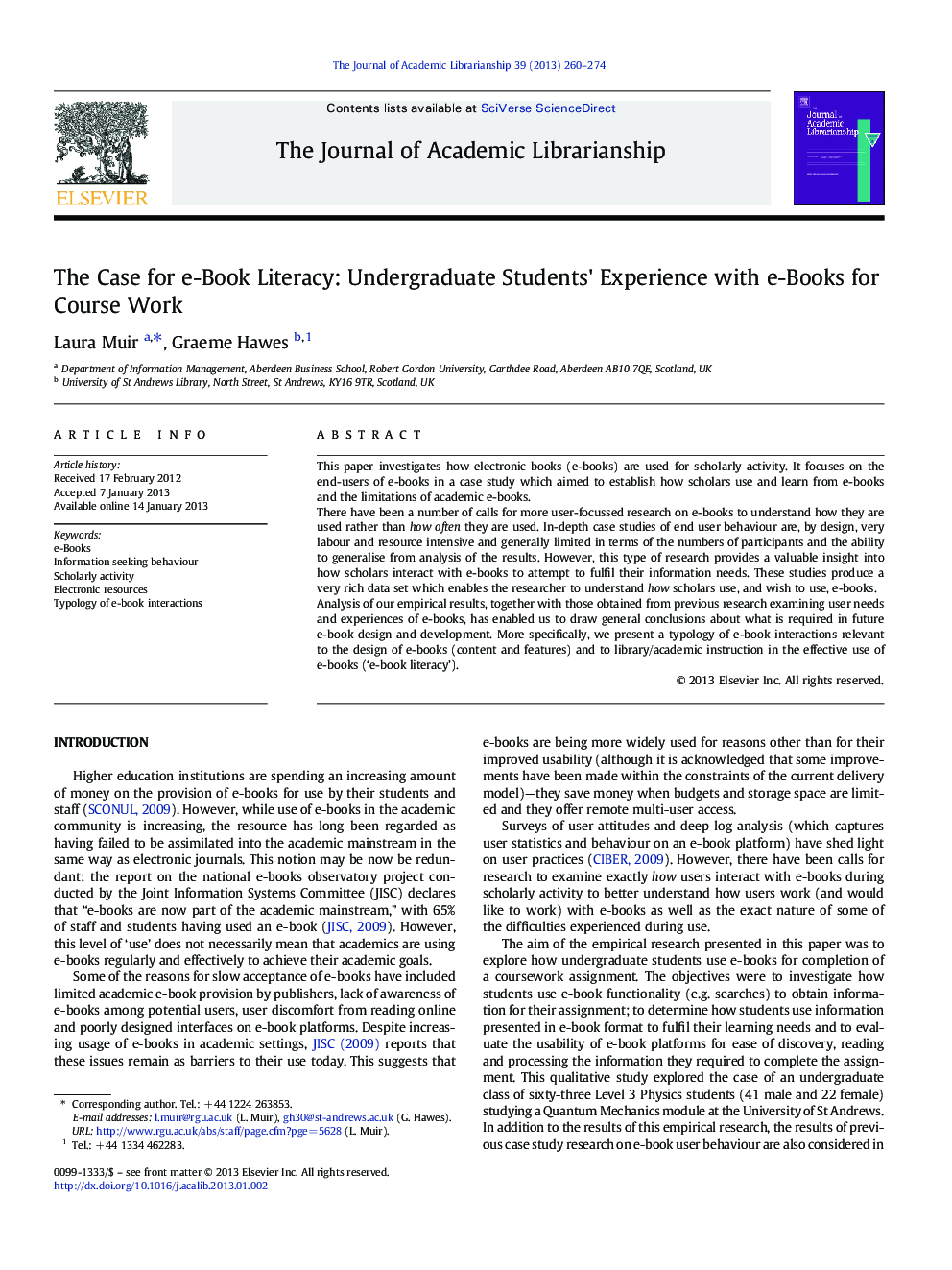| Article ID | Journal | Published Year | Pages | File Type |
|---|---|---|---|---|
| 358333 | The Journal of Academic Librarianship | 2013 | 15 Pages |
This paper investigates how electronic books (e-books) are used for scholarly activity. It focuses on the end-users of e-books in a case study which aimed to establish how scholars use and learn from e-books and the limitations of academic e-books.There have been a number of calls for more user-focussed research on e-books to understand how they are used rather than how often they are used. In-depth case studies of end user behaviour are, by design, very labour and resource intensive and generally limited in terms of the numbers of participants and the ability to generalise from analysis of the results. However, this type of research provides a valuable insight into how scholars interact with e-books to attempt to fulfil their information needs. These studies produce a very rich data set which enables the researcher to understand how scholars use, and wish to use, e-books.Analysis of our empirical results, together with those obtained from previous research examining user needs and experiences of e-books, has enabled us to draw general conclusions about what is required in future e-book design and development. More specifically, we present a typology of e-book interactions relevant to the design of e-books (content and features) and to library/academic instruction in the effective use of e-books (‘e-book literacy’).
